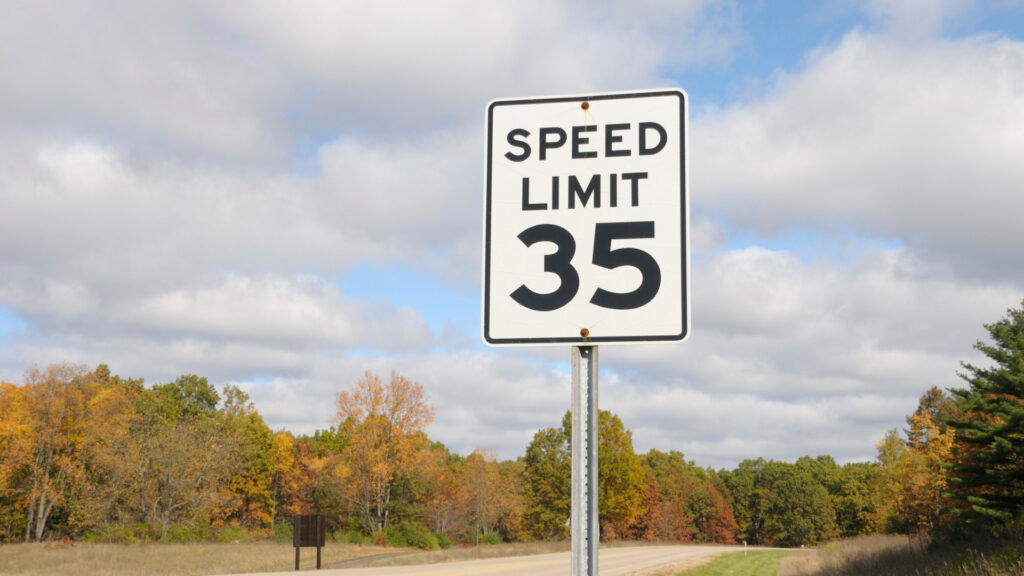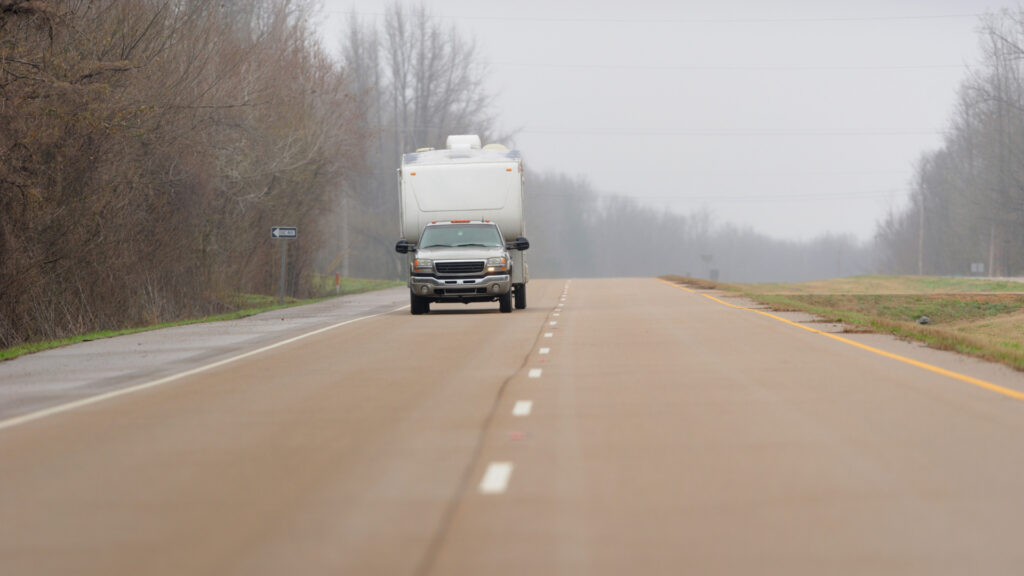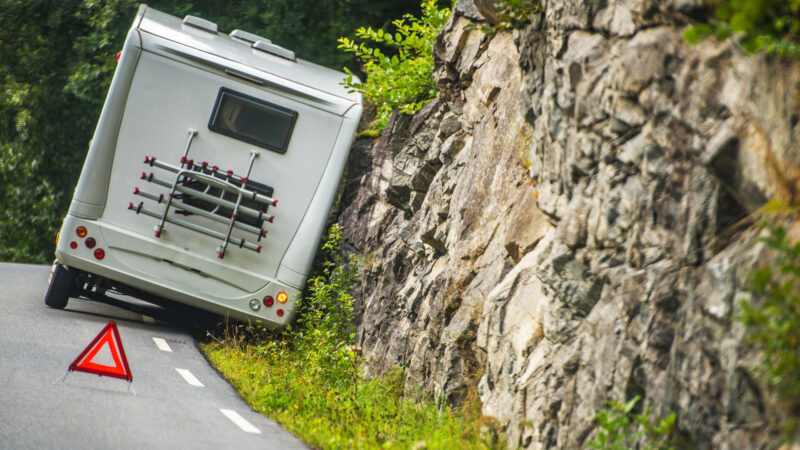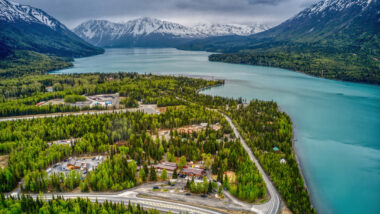Table of Contents Show
Getting into a crash in an RV is every owner’s worst nightmare. It doesn’t matter whether you’re in a towable or driveable; it can be a terrifying experience.
Dealers and manufacturers talk a lot about the features and capabilities of recreational vehicles. However, they hardly ever talk about safety. So, are you safe if your RV is in a crash?
Today, we’re diving into a topic few owners even want to consider. However, pretending it’s impossible won’t do you any good.
Buckle up, and let’s get started!
Are RVs Safe in a Crash?
Your safety in an RV crash varies significantly depending on your camper’s size, type, and age. As you might assume, newer, larger vehicles are better equipped and provide more protection. Some newer driveable models feature airbags, anti-lock brakes, and stability control.
On the other hand, towable RVs like travel trailers and fifth wheels typically don’t offer many safety features. They generally rely on the tow vehicle’s capabilities and safety features. This is one of the many reasons we encourage you to stay within the towing capacity of your vehicle.
Overall, RVs aren’t the safety vehicle you want to be in during an accident. Because many of them are made of lightweight, cheap wood, even a minor accident can do a significant amount of damage. It doesn’t take a severe impact to total most of these vehicles.
What Type of RV is Safest?
If safety is your biggest concern, a Class A motorhome will be the safest option. These massive bus-like vehicles can absorb blows and impacts from almost anything.
Since they tip the scales upwards of 30,000 to 40,000 pounds, they also provide tremendous stability. Many of these models also have safety features like airbags and advanced stability control to keep you safe.
However, just because you’re in a beefy vehicle doesn’t mean you can throw caution to the wind. Navigating these beasts can be challenging, especially in tight or crowded campgrounds. You should prioritize safety no matter what type of RV you drive.
Do RVs Get Crash Tested?
The National Highway Traffic Safety Administration (NHTSA) oversees safety standards for motor vehicles, including RVs. These typically include seat belts, child restraints, lighting, and other essential features. However, while RVs must follow these safety standards, minimal crash testing is done.
Some manufacturers crash-test portions of a vehicle. These are usually Class B and C motorhomes because they sit on an automobile chassis. It’s almost unheard of in the industry to crash-test an actual RV.
How to Avoid an RV Crash
One of the biggest concerns for many drivers is avoiding a crash in their RV. Because we want you to stay safe, we’ve compiled some tips for how to avoid crashing your RV. Let’s take a look.
Watch Your Speed
As the driver, one of the biggest things you can do to avoid a crash in your RV is to watch your speed. The faster you’re going, the longer it will take you to stop. When avoiding a dangerous situation, every extra inch can make a difference.
Despite what the speed limit says, it’s best to avoid exceeding 65 miles per hour in your RV. This can help ensure you maintain control and can stop in time if a dangerous situation presents itself. If you have a heavy foot, this adjustment can be very challenging.

Know Your RV’s Dimensions
No matter what size or type of RV you’re in, knowing its dimensions is essential. The last thing you want to do is exceed a low clearance or weight limit. You could find yourself in a risky situation or cause severe damage to your previous RV.
When measuring your towable RV, you must measure it at the highest point when connected to the tow vehicle. This will give you the most accurate measurement.
Once you have your length, height, and weight, write them on a sticky note and post them in your vehicle. This can help ease your worries when you see a warning sign.
Plan Your Route
We use RV Life’s
When planning your route, it’s also important to consider traffic. If you’ve ever driven through cities like Atlanta, Georgia, you know the time you drive through can make a difference.
Going through during the morning or evening commute can be a stressful experience. It’s a good idea to time your drives through major cities to avoid the busiest times.
Keep in Mind: Recently, a dump truck and RV collided in Quechee, Vermont. See what happened!
Perform Regular Maintenance
You should also complete regular maintenance to keep yourself and your RV safe from crashes.
If you’re unsure what to do, check the owner’s manual or documents that came with your rig when you purchased it. Manufacturers often provide a detailed schedule of when to perform specific maintenance.
When doing maintenance, be aware of what tasks you can complete and what you need to hire a professional. Performing a maintenance task incorrectly is equally as dangerous as not doing it at all. You don’t want to bite off more than you can chew and put yourself in danger.
Stay Alert
Driving an RV can be exhausting because it requires so much of your focus and attention. Take frequent breaks to stay alert behind the wheel. Some drivers keep their daily mileage to a few hundred miles to avoid exhaustion setting in and the risk of an RV crash.
Unfortunately, driving limits vary from person to person. If you don’t feel alert, find a safe place to park for the night. As we often say, it’s better to be safe than sorry.
Adjust for Weather Conditions
Mother Nature can be temperamental when it comes to the weather. You must adjust your driving to the weather conditions, especially snow, ice, and rain. Continuing to drive like everything is normal is incredibly dangerous.
Roads will typically be the slickest in the first 10 to 15 minutes of rain. The liquids bring oils and other grime on the road to the surface. This can drastically increase your stopping distance and decrease stability.
In addition, you should also consider wind speeds. Strong gusts can push you back and forth on the road. Find a safe place to park and wait out extreme conditions. It’s better to be late than to put yourself in danger.
Keep in Mind: If you catch yourself driving on a foggy day, you should always do this!

Avoid Distracted Driving
Despite almost every state having distracted driving laws, it’s shocking how many drivers ignore them. When you’re behind the wheel, there’s no text, email, or Facebook message important enough for you to need to read it. Doing so puts your life, passengers, and others on the road in danger.
Even adjusting the radio or messing with climate settings can be dangerous. Allow other passengers to take care of these tasks. It only takes being distracted for a second for a disaster to happen.
Safe Travels for You and Your RV
Unfortunately, there’s no way to eliminate the risks of driving an RV on the open road. Even if you’re following the rules of the road and doing everything you should, you could still experience an RV crash.
However, you can do your part to minimize the risks by following the tips we discussed. Be the best driver possible, and we hope you have safe travels!
Do you have any other safe driving tips?






